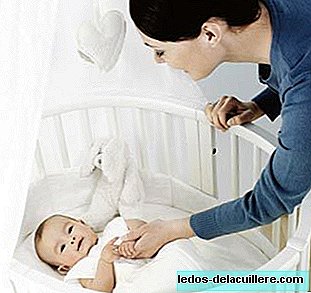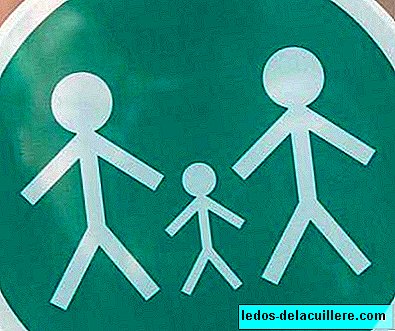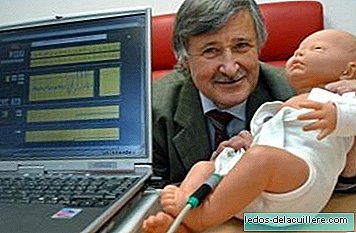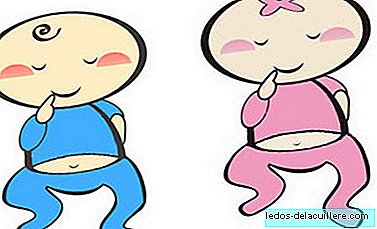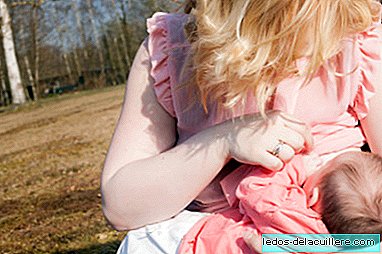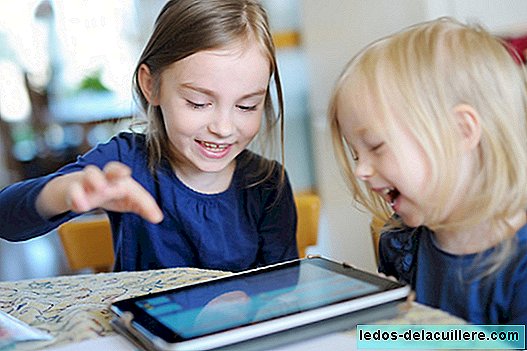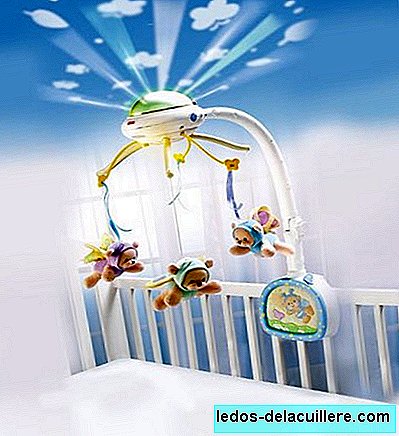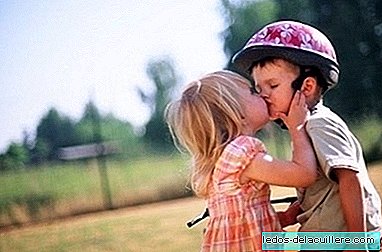
After the interviews we did a few weeks ago to a series of psychologists about girls' hypersexualization, I wanted to know more about which one should be the right one development of our children's sexuality.
Therefore I now interview the psychologist Edurne Simón, a specialist in child and adolescent psychology and director of the Thaibaby project in Almería, where workshops and living spaces for parents are offered. Let's talk to her in depth about childhood sexuality, its evolution and stages, normal and worrisome behaviors, questions and games ...
When to start sex education and how to adapt it to each stage of the child?
It is important that we start from the idea, or rather from reality, that we are sexed beings and that sexuality is born with us and in the same way ends with us.
It accompanies us throughout life, but it develops and lives differently at each stage of it. In early childhood sexuality is especially related to affectivity, if possible more intensely than in the rest of our development. Therefore, the signs of affection, the ways and patterns of relationship that are learned and shared from birth are already part of the sexual education we give to children. In the first months this will be the most direct relationship with sexuality. A little later we can start working with body knowledge and at this stage it is very important to start introducing the concepts of privacy and self-care. They are children but their body is theirs and internalizing this premise is the best protection against abuse. No one other than their own caregivers or medical professionals has to manipulate their body and this is something we should teach them. On the other hand, although they still cannot maintain proper hygiene habits on their own, it does not hurt that they are seeing and internalizing the proper way to do it, telling them how important it is, how well we feel when taking care of ourselves properly. Very related to this aspect and that of privacy, I would like to emphasize the importance of not forcing children to give kisses and hugs when they don't want to. There are other ways to be polite and show affection. Teaching them that they must show affection in a forced way is not good learning for their present or their future.
And when they grow a little?
Later we must get used to self-exploration, questions and curiosity, sometimes without limits. Actually there are quite a few general premises, it is enough to generate a climate of trust that allows children to raise their doubts at any age. Getting this is easy, answering your questions and not censoring your curiosity is usually enough. And on the other hand be positive models of personal relationships. At first we can rely for example on books or stories that will be of great help. Later, the media content itself and its experiences will help us start conversations and address the issue. In summary, I believe that there is no concrete moment to start sex education, it is a continuum from the first minute and the ideal is to adapt not only to the stage but also to the child himself and his abilities.
Can you explain the stages of sexual maturation of children?
Without going into the different conceptions and theories about psychosexual development, let's say that during the first years, until approximately two, children experience their sexuality as part of their physiological development. They feel pleasure with physical contact, experiment with their own body but there is no separate recognition of the rest of the body, nor gender identification.
And when they turn two, do they also change in this aspect?
From the age of two, thanks also to the new motor and cognitive achievements, boys show greater curiosity, progressively begin to identify themselves with external attributes (girls wear skirts and long hair ...) and later experimenting with their own body is more active and more conscious.
Sometimes exhibitionist behaviors and games with other children appear. Little by little they discover that gender differences go beyond physical attributes and begin to ask questions about the subject.
But, sooner or later, they are going to ask about sexuality and reproduction, right?
Around seven years of age and up, it is common for children to seem to suffer a setback in their sexual curiosity, but it generally has more to do with shame. Children begin to share doubts with their peers, they are already fully aware of the sensations of pleasure that appear in their body and of gender differences. This phase usually lasts until adolescence, at which time the sexual interest rebounds or explodes, but this stage deserves a question for itself.
What behaviors should alert us that there is a problem?
The main warning signs are those behaviors that are not expected for the child's age. If we find excessive or compulsive stimulation, we see that the child uses a very sexualized language or reproduces, fundamentally in the game, sexual behaviors we should be alarmed. When our child is excessively withdrawn, worried or anxious we must also ask what is happening, it does not have to be related to sexuality, but it is worth checking out there too. In addition, if our child never asks anything about the subject, we must also ask ourselves why he does not.
The curiosity about sexuality is innate to us, if you ask us nothing, it is not normal either.
We finish the first part of this interview that Babies and more has done to the child psychologist Edurne Simón. Tomorrow we will address more specific questions about the questions, games and attitudes of children in their sexual development.



